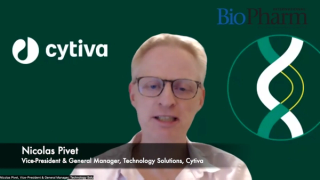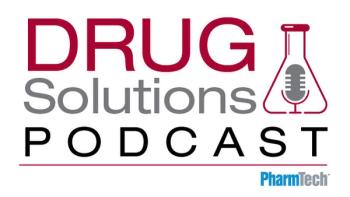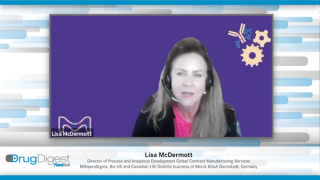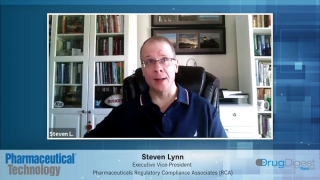
Process and Scaling
Latest News
Latest Videos

More News

Insights into molecular behaviors and predictive capabilities are bringing numerous benefits.

FDA has published final guidance documents regarding validation and development of analytical procedures.

Monoclonal antibody and viral vector manufacture share similarities, but vector scale up faces unique challenges.

Model informed formulation development uses in-silico modeling and simulation to identify and/or refine promising formulations faster and cheaper, support formulation strategy and increasingly, demonstrate virtual bioequivalence and obtain biowaivers.

Sterling is known as a global contract development and manufacturing organization, and their network spreads to a manufacturing site in Cramlington, United Kingdom, a recently GMP-licensed dedicated bioconjugation facility in Deeside, and a 111-acre site in Ringaskiddy, Ireland.

Quality Quartets may be used to achieve knowledge-driven, risk-based approaches to commissioning and qualification that are consistent with ICH Q9(R1) principles.

Jane True, vice-president of mRNA Commercial Strategy & Innovation and Global Pandemic Security Lead, Pfizer, shares her perspective on how mRNA will shift commercial models in the pharmaceutical industry.

Machine learning provides real-time data for process control of high-shear wet granulation.

Digital transformation to the Pharma 4.0 paradigm moves forward in process development and clinical and commercial manufacturing.

Decreasing vein to vein time saves lives.

Although new single-use technologies offer the flexibility needed to overcome several challenges in ATMP production, there are many considerations and hurdles manufacturers must be aware of when scaling.

Shifting guidance and the growing prominence of computer software assurance exemplify the state of computer software validation.

Susan J. Schniepp, distinguished fellow for Regulatory Compliance Associates, and Shiri Hechter, senior lab operations manager for Nelson Laboratories, provide a simple approach to validating analytical methods.

Dissolution testing is experiencing a refresh thanks to a variety of market drivers.

Adherence to detail and thorough project management are required for successful tech transfer and scale up.

In this episode, Ana Ladino provides expert insight into novel excipients in the current and future drug development landscape.

An expert from Aptamer Group reveals the potential of Optimers (a type of aptamer) in the realm of drug delivery, including its targeting capabilities, scalability, and key differences between Optimers and antibody-drug conjugates.

Experts from Umoja Biopharma dive into cell therapy development in this episode of the Drug Solutions Podcast, including the greatest advancements in cell therapy to date, areas for improvement, the biggest trends in cell therapy development, and retention as a pain point.

As we reach further afield in the molecular universe, we encounter new types of problems to resolve.

Avid Bioservices has expanded its viral vector development and manufacturing facility with the addition of analytical and process development suites.

Flexible and efficient methods are needed for biopharmaceutical manufacturing.

Digital maintenance solutions can help visualize the value and key activities provided by the equipment vendor from inception to utilization.

Process validation for a drug product must be done with commercial scale batches, says Siegfried Schmitt, vice president, Technical at Parexel.

Experts Susan J. Schniepp, distinguished fellow for Regulatory Compliance Associates, and Steven J. Lynn, executive vice-president, Pharmaceuticals for Regulatory Compliance Associates, discuss the verification of compendial methods.

Developers need to consider key challenges when approaching accelerated formulation strategies to ensure success.








